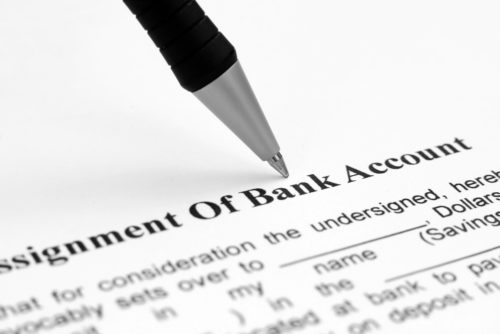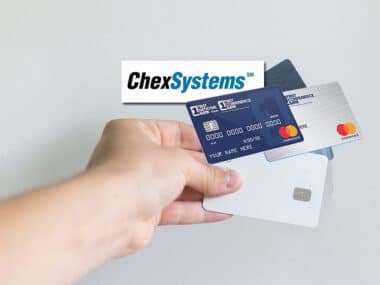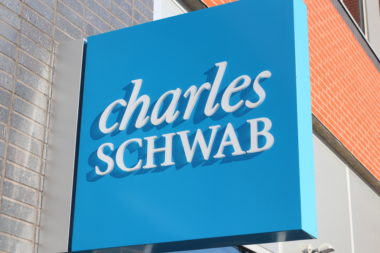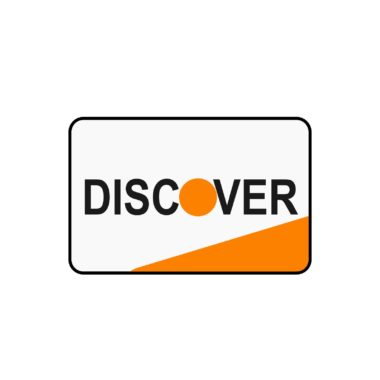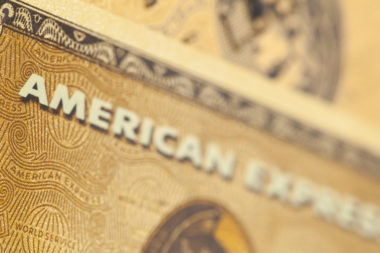Depending on financial needs, there are several different types of bank accounts a person can open. For instance, some may open a savings account to accrue interest on their savings — letting their money sit and grow in case of large expenses or emergencies. Others may be planning for retirement, and are choosing to pay into it now to enjoy their pension later.
One typical bank account that many users enjoy is a checking account. A checking account is versatile and offers features that you may use daily. By opening one, you can take advantage of online banking benefits, write checks, and get a debit card.
Opening a checking account isn’t terribly difficult, but you will need to do your research to find out if it’s the right move for you and gather the necessary documents and application materials first.
Table of Contents
What You Should Do Before Opening a Bank Account
People open checking accounts for many reasons — making debit card purchases, writing checks, paying bills, and more. Knowing about these kinds of features will help you when you’re deciding whether to bank with one institution over another.
Additional factors that go into the decision may include banking requirements, location, and fees. Choosing which bank or financial institution to open an account with will most likely hinge on whether the institution can provide the right features to accommodate your financial objectives.
Identify Your Needs
First and foremost, you should consider what your financial needs are and why you want to open a checking account. Do you need an account for everyday financial activities, such as transferring money or paying your bills electronically? Do you plan to do all of your banking online, or do you need a branch or ATM nearby? How much money do you expect to keep in your account?
Think carefully about the answers to these questions, as well as what features are more important to you than others. In addition, if you qualify for a special account (such as a student bank account) you should also consider whether you would prefer that to a standard checking account. It’s best to determine the answers to these questions before you begin looking at different banks, as doing so will greatly simplify the shopping process.
Compare Banks and Financial Institutions
There are plenty of banks, credit unions, and financial institutions you could choose to open a checking account with — all offering various features and perks. To narrow down your options and find out which bank is best for you, examine what your financial needs are and what you can and can’t do without.
It may be the case that a particular bank provides many benefits, but none of them pertain to you. When looking to open a checking account, understand your prospective financial institution’s stance on the following:
- Fees: Before opening a checking account, know what charges you will need to pay. Fees are one way that banks make money, and you may not be able to avoid them entirely, but it is important to know the charges you could encounter. Overdraft fees, and whether one will be applied, can be enough of a deciding factor to look elsewhere. If you are not concerned about overdrafting your account and a bank offers additional features that are useful to you, consider looking further into banking with them.
- Incentives: Not many checking accounts feature interest rates. However, you may choose to bank with an institution if they do offer this feature, and enjoy making a little extra off of the money sitting in your account. Many banks do offer new account bonuses, cash incentives, or a monthly credit that you may take advantage of as well. On some occasions, you might have a tough time deciding between banks, but the bank that offers the better incentives will likely win you over.
- Convenience: You may prefer walking into your bank instead of speaking with a representative over the telephone. Alternatively, maybe you favor the ease of online banking. Your decision can even come down to the fact that a bank has a branch or ATM close by. Whatever the case, you’ll want to make sure the bank you are choosing to open a checking account with provides the types of services you are most comfortable with, and that are most convenient to you.
Comparing the various banking and financial institution options available to you may be overwhelming. However, if you know what you are looking for, and how a bank can best suit you, you can quickly check many of the options off your list as soon as you learn they are of no benefit to you.
Determine Who Has Access
Finally, decide who else has access to the account. If you share finances with a spouse or partner, a joint account may be the best option for you both. Joint accounts can also be useful for sharing finances with other family members, such as if you’re a caretaker for an elderly relative or need to monitor your child’s spending. However, no one else needs to have access to your checking account, and you should always think carefully before adding a co-owner, even if they’re family.
What Is Required When Opening a Checking Account?
Finding and choosing a bank or financial institution you trust, one that will support your financial goals, is only the beginning — you’ll still need to open an account with the bank. Although some banks may request additional material, what you need to open any bank account includes:
- Some form of identification: This may be a driver’s license, passport, or state-issued ID. Not only does the bank need to verify your identity, but they also need to confirm that you’re at least 18 years old.
- Social Security number: You may only need to provide the number, but some banks might require you to bring your Social Security card or other documentation.
- Address and phone number: Your bank needs this information to contact you and mail your monthly billing statements.
- Initial deposit: Most banks require an initial deposit to open a checking account. The amount can vary depending on the type of account, but it’s typically between $25 and $100.
Some banks may have additional requirements, so be sure to familiarize yourself with any other documents, information, or application materials you may need for the financial institution you’ve chosen.
How Old Do You Have to Be to Open a Bank Account?
Generally, you have to be at least 18 years old to open a checking account on your own. If you are under the age of 18, you can still open an account, but you’ll need a co-owner who is a legal adult to open it with you. It isn’t enough to have permission from your parents; someone must open the account with you.
Be sure to learn about the bank’s policies regarding joint accounts once minors turn 18 before you open a joint account, as well as what happens to any accounts your parents opened for you as a child.
What to Do After Opening Your Checking Account
Once you’ve opened your account, you’re free to start using it. Along with your account, you’ll receive a debit card. You may also get some personal checks and deposit slips. You can start using your checks and slips immediately, but you will have to activate your debit card before you can use it.
Opening a checking account isn’t a daunting task. However, you will want to pay attention to which bank you are choosing and what you want from your checking account to make sure it’s the best choice for you and your finances.
Image Source: https://depositphotos.com/
